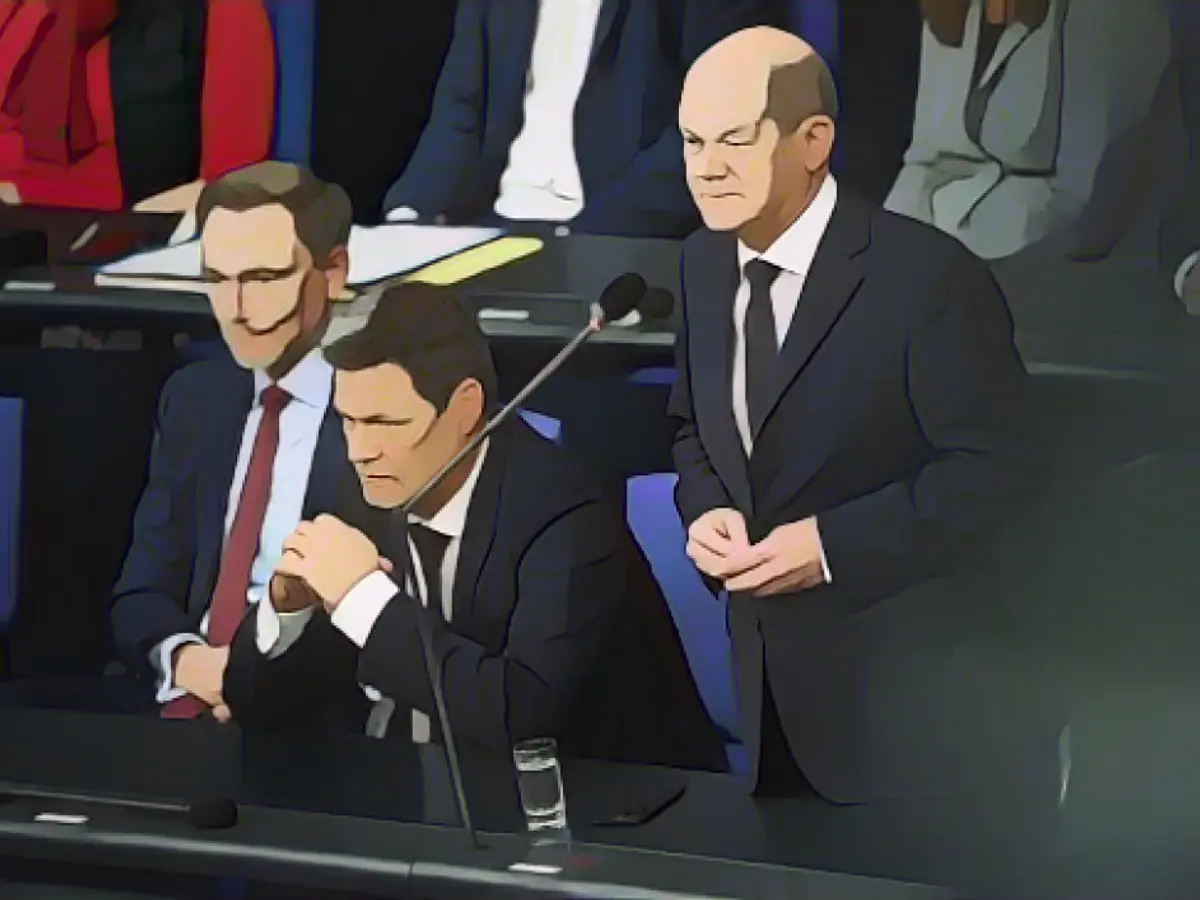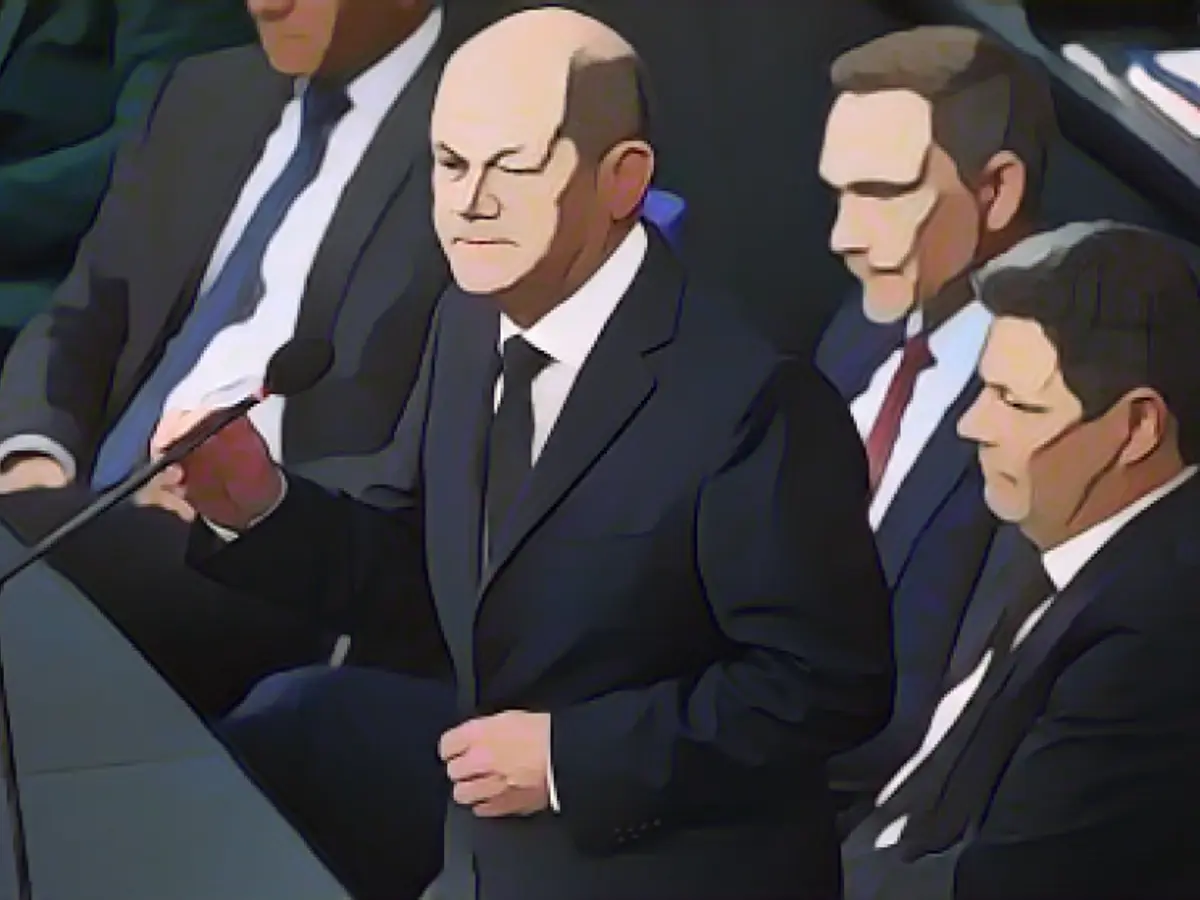Title: Navigating Germany's Economic Challenges: Perspectives from Industry Leaders
The chaotic budget of the 'traffic light' coalition government is causing ripples across Germany, raising serious concerns around the economy's stability and future prospects. As the country grapples with rising costs and dwindling competitiveness, what does this mean for businesses and jobs? Let's delve into the thoughts of industry giants who've shared their insights on the issue.
Heinrich von Pierer (82), former Siemens boss
Icon of industry, Heinrich von Pierer, maintains that Germany doesn't require an extensive overhaul but rather needs refocusing to become fit again. After two years under the rule of the 'traffic light' coalition, the green rhetoric has reached its end. His message: Ideology shouldn't dictate, and work should remain rewarding, not the alternative.
Gunnar Groebler (51), boss of Salzgitter AG
The steel industry titan, Gunnar Groebler, expressed concern over the sudden uncertainty and altered investment landscape. With a billion-euro hole in the budget, serious questions emerge about the future of climate protection agreements and competitive electricity pricing – the lifeblood of Salzgitter AG's ongoing transformation.
Marie-Christine Ostermann (45), Rullko Großeinkauf and President of the Family Business Association
Exasperated by the government's failure to strike the right balance, Marie-Christine Ostermann calls for an immediate halt to unaffordable regulations. The Family Business Association's president highlights that a government pushed beyond its means has reached its limit.
Wolfgang Grupp (81), Trigema
Veteran of industry Wolfang Grupp firmly believes responsibility ought to return to society and politics. The situation, as he sees it, is self-inflicted, and politicians should learn to manage their funds responsibly.
Tina Müller (55), former boss of Douglas (18,000 employees)
In the face of adversity, Tina Müller urges the government to maintain investment in climate protection and ecological transformation, prioritizing efficiently without sacrificing the future. Her philosophy: Empower employees to contribute creatively during crises.
Christoph Werner (51), head of dm-Drogerie (46,000 employees in Germany)
Christoph Werner advocates for testing planned expenditure and refocusing resources on key areas for Germany's rebound. He encourages a renewed emphasis on shaping the framework for the social market economy.
Ernst Prost (66), former boss of the oil manufacturer Liqui Moly
Ernst Prost argues for allocating more funds to education and infrastructure, encouraging politicians to communicate the need for debt transparently. Daunted by the caliber of political talent, he cites the importance of investing in future leaders.
Michael Lohscheller (55) Ex-Opel boss
Michael Lohscheller's message resounds with pragmatism and urgency. He urges the government to evaluate current problems, and propose suitable solutions, while prioritizing efficiently and avoiding waste. The decline in Germany's economic dynamism alarms him, as does the lack of clear measures to turn the tide.
Christian Kern (57), Chairman of the Supervisory Board of Solar-Glasmanufaktur Brandenburg
Austria's former politician and Solar-Glasmanufaktur's Supervisory Board Chairman, Christian Kern, reveals deep concern as Germany teeters on the brink of creeping deindustrialization. In his view, blunders have squandered future opportunities and jobs, leaving little time to rectify the situation.
Christian Tiedemann (57), head of the leading digital expert MAI Group
Christian Tiedemann's vision is a nationwide digital-first strategy and an expedited suspension on regulations. He believes incentivizing tradesmen, revitalizing the construction industry, and encouraging early retirees to rejoin the workforce will stimulate the economy.
Andreas Rock (38), head of the traditional German distillery Ziegler
In the presence of Ziegler's young CEO, Andreas Rock, the importance of the hospitality industry – and its intangible benefits for society – cannot be overstated. He calls for an immediate correction of the decision to increase VAT for the hospitality industry, which, he believes, would only serve to undermine Germany's creative and convivial spirit.
--
[1] Enrichment Data: In response to the COVID-19 pandemic, the German government implemented various economic stimulus measures to support businesses and families. These measures included a €130 billion stimulus package, a temporary reduction in VAT, and loan programs for small businesses, among others.
[2] Enrichment Data: Despite these measures, the German economy has faced challenges such as high energy and labor costs, surging inflation, supply-chain disruptions, and increasing interest rates. Businesses like Volkswagen AG have announced mass layoffs as they struggle with these issues and a decline in industrial production.








